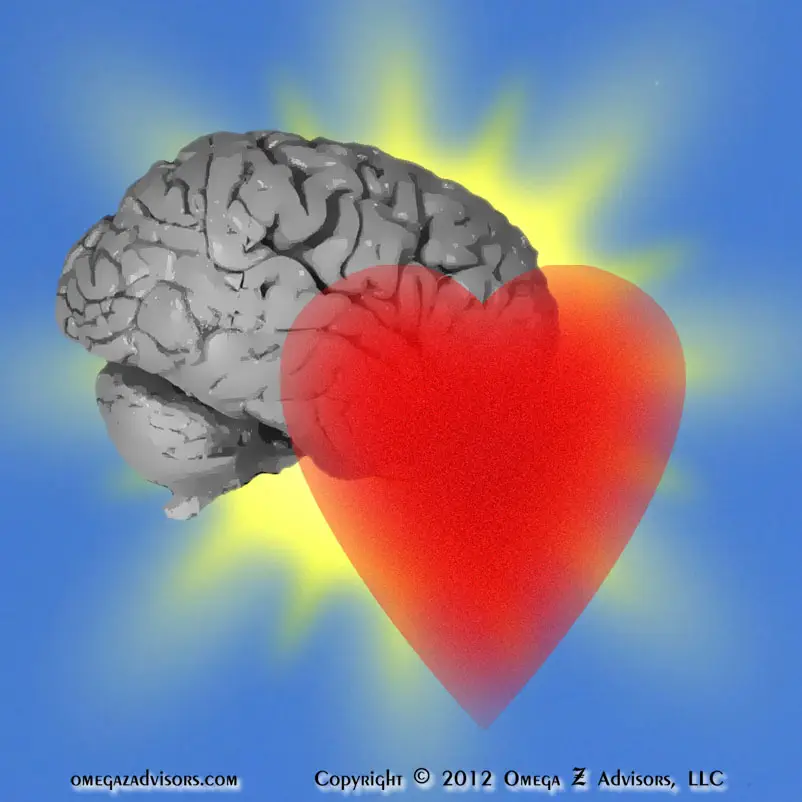Emotional Intelligence vs. Intuition (Pt 4): Conscious vs. Unconscious
 A major difference between Emotional Intelligence (EI) and intuition is the relationship of each to our conscious and unconscious selves. Whereas EI is primarily concerned with the former, it ignores the latter. Intuition, on the other hand, is very connected with our unconscious and influences our conscious.
A major difference between Emotional Intelligence (EI) and intuition is the relationship of each to our conscious and unconscious selves. Whereas EI is primarily concerned with the former, it ignores the latter. Intuition, on the other hand, is very connected with our unconscious and influences our conscious.
Google searches illustrate this. When we insert “intuition and unconscious,” we immediately get a suggested search in the dropdown menu; we don’t with “emotional intelligence and unconscious.” In fact, when we go to search the original Goleman publication, “unconscious,” “subconscious” or “intuition” don’t appear.
Cognition, of which consciousness and intelligence play an important role, give form to our feelings and emotions. Thus, it’s one thing to be aware of something and another to express it as knowledge, proof or data.
Pragmatically, this means that those with high EI scores could have low intuitive functions and sensitivity because EI focuses on observable events not unconscious ones such as those routinely occurring in marketing, advertising and merchandising (more). It also means that people, who are very intuitive but cannot express it or translate it into action, will tend to have low EI scores.
For example, a sensitive person could get unconscious feelings about people from the words they use. Yet, the sensitive person would score low on EI if he could not express and attribute those feelings or translate them into specific actions that fit into the EI testing methodology.
Thus, EI exclusively focuses on what we consciously observe and communicate around emotions, in effect intellectualizing emotions, making knowledge of them intelligence. Intuition, on the other hand, often operates subconsciously. It means we can get feelings about people without knowing exactly how we got them. EI does not measure the degree to which this happens inside us.
- Emotional Intelligence vs. Intuition: The Difference
- Emotional Intelligence vs. Intuition (Pt 2): Distinct as Head and Heart
- Emotional Intelligence vs. Intuition (Pt 3): Problem Solving
- Emotional Intelligence vs. Intuition (Pt 4): Conscious vs. Unconscious
- Emotional Intelligence vs. Intuition (Pt 6): Music Analogy
- Emotional Intelligence vs. Intuition (Pt 5): Group vs. Individual


Mike your comments are very interesting but I think this is an issue with the definition of EI, or EQ as some call it. The concept of intelligence (IQ) took decades to define and many still believe that the various tests which supposedly measure it are lacking. For a while people were so exasperated with the whole thing that they said IQ was “what the tests test”, the perfect circular argument. EI/EQ, like employee engagement, are very new fields and I don’t think the definitions are anywhere near what they should be. For me, to be emotionally intelligent is to be very aware of the unconscious: to know what has happened to us in childhood, for example, and how we might still be living from those experience rather than really in the here and now. I don’t claim any special place in this field but I did take a stab at a broader definition here: http://wp.me/pEDK3-nY
best to you, David
David, you’re very right. The definition is the problem. It’s still very arbitrary. I also believe the marketing of EI has begun to exceed the development of EI. It’s similar to the early use of “organic” to describe food. There was no regulatory definition so anyone could use the word to describe anything in their food product. EI means very different things to different people. Consequently, it’s extremely diluted and becoming more so. In general, I use Goleman’s definition since more tend to use it. I don’t agree with it, but it is the most popular. That’s why I refer to it the most.
Nevertheless, you hit the problem dead on. The lack of a disciplined, generally accepted definition has allowed EI to become an all-purpose remedy for whatever ails us. Just change the definition to fit whatever will secure the business. As with all selling, labels matter. EI has become more a label than a disciplined concept.
Thank you for visiting and leaving your insights, David. I appreciate it. ~Mike
Mike I am glad we are on the same page here. Its such a fundamental problem, and as I mentioned above we see it very much in employee engagement, where the “benchmarks” for different countries’ levels of worker engagement are all over the place, depending on the research firm which collected the data, their definition of engagement and their resulting questionnaires used to measure it. I recently read a very popular article on LinkedIn on EI (http://linkd.in/1wVaL5V), and the definition was so shallow but people didn’t seem to focus on that, they argued only the EI/EQ versus IQ question. Without a good definition all this is meaningless, and I believe EI needs to be broadened and deepened before it matches what people really feel inside.
thanks for this interesting chat and best to you,
David